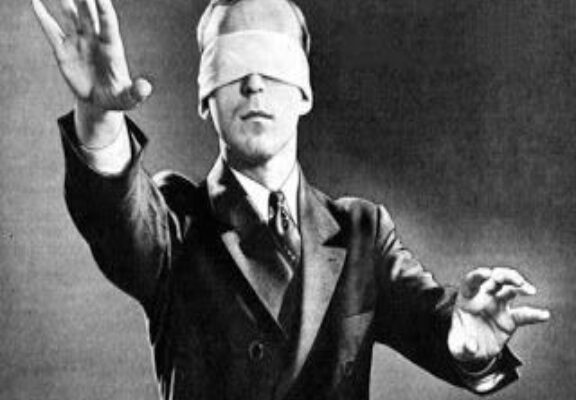René Guénon is an interesting author. I don’t necessarily agree with all of his theories and ideas, but his writings force those of us living under modernity to challenge our foundational beliefs.
I’m re-reading through one of my favorites from him – The Crisis of the Modern World – and particularly enjoyed his section on agnosticism (and by extension, modern scientism/atheism):
For Aristotle, physics was only “second” in Its relation to metaphysic. That is to say it was dependent on metaphysic and was really only an application to the province of nature of principles that stand above nature and are reflected in its laws; and one can say the same for the cosmology of the Middle Ages. The modern conception, on the contrary, claims to make the sciences independent, denying everything that goes beyond them, or at least declaring it “unknowable” and refusing to take it into account, which comes to the same thing in practice. This negation existed for a long time as a fact before there was any question of erecting it into a systematic theory under names such as “positivism” and “agnosticism,” for it may truly be said to be the real starting point of all modern science. It is, however, only in the nineteenth century that one sees men beginning to glory in their ignorance — for to proclaim oneself an agnostic means nothing else — and claiming to forbid others any knowledge to which they themselves have no access, and this marked one stage further in the intellectual decline of the West.
By seeking to cut the sciences completely away from any higher principle, under pretext of assuring their independence, the modern conception robs them of all deeper meaning and even of all real interest from the point of view of knowledge, and it can only bring them to a blind alley, enclosing them, as it does, in a hopelessly limited realm. Moreover, the development achieved within this realm is not a deepening of knowledge, as is sometimes supposed, on the contrary, it remains quite superficial and consists only in that dispersion in detail to which we have already referred.
René Guénon – The Crisis of The Modern World
Guénon certainly went off the deep end later in his life (he converted to Islam, was provided an Arabic wife by a fellow Muslim, and ended up dying in Egypt after becoming disillusioned with Catholicism), but his work is still incredibly insightful for a modern reader. A good, short introduction to him can be found here.
One reason I enjoy his work is because of those flaws, and that he lived a life inline with what he truly believed. His life is a good example of a dissident that goes insane from a desperation to fill that traditional void that modernity strips from us.
In this particular quote above, he combats agnosticism. Where agnosticism is:
… human reason is incapable of providing sufficient rational grounds to justify either the belief that God exists or the belief that God does not exist…
Which is, exactly as Guénon describes it, a glorification of ignorance. He notes that modernity’s obsession with rationalism is a degeneration from a traditional frame.
Even Nietzsche would say that our scientism/rationalism has simply replaced religion, and in practice has become a religion of its own. Nietzsche often said that the Renaissance just switched out one religion (Christendom) for another (humanism). The primary difference is that Nietzsche would not agree with the concept of absolute truth, whereas Guénon spent his life trying to find that truth through Tradition (capital T).
Agnosticism is simply a hyper-modernist rendition of extreme rationalism to the point of absurdity. Guénon demonstrates this in the book by showing that the modern man is so focused with rationalism that he takes it to the extreme of not being able to actually rationalize anything. It transcends religiosity. This happens principally because the modern man has nothing to connect to that is higher or above himself, so nothing can be learned through true metaphysics. Thus, the end of any train of rationalist thought will conclude with an “I don’t know”.
The rationalist believes everything must come from a scientism view. Nietzsche and Guénon are both right in that our modern framework is the worship of human reason (spiritual ignorance and a prideful belief in humanism) which is a degeneration from the past. I don’t agree with the conclusions or solutions from either author, but their analysis of the problem is sound.
Guénon’s work is one of my books in The Recommended Reads section on my website. If you haven’t viewed that list yet, I highly encourage you to do so.
Modernity denies to anyone else the knowledge that any single person can’t figure out. Which is why in our current climate we have no knowledge, or intellectual intuition, or a stable being. We have only confusion and clown world.
But the agnostic would claim that they can’t even know that for sure.

A Christian, husband, father, and American dissident. Join him in seeking truth and sipping sweet tea during the collapse of the American Empire. You can find more of his work at hiddendominion.com. Eph. 5:11.






This is why I’m a presuppositionalist … and so is everyone else — whether or not they’ll admit it. Because Western Man surrendered logical realism to embrace nominalism, he’s been left ever since in an abyss of skepticism.
Our esteemed and brilliant R.L. Dabney put it very well:
“The recognition of the Ego which knows is a priori, and in order to, perception of an object known by it. If then the existence of mind is uncertain, the existence of anything objective is inevitably more uncertain. Does sense-perception seem to the materialist to give him the most palpable knowledge of the matter external to him? He has only been enabled to construe that perception at all, so as to make it a datum of valid knowledge, by first crediting the intuition of consciousness which reveals the perceiving Agent distinct from the object revealed. How unfair, how unscientific is this attempt to use intuition in its less direct, and refuse it in its more direct, testimonies! If she is to be trusted in her interpretation of the objective sensation, she is, of course, still more to be trusted in her subjective self-consciousness.”
R. L. Dabney, ‘Immortality of the Soul and Defects of Natural Religion’
Martin Heidegger:
Being And Time?
If only I could read German?
Anyways look at the world through Anglo ways !
God Bless Dixie
Most people are atheists in that they act as if there is no God.